Lawmakers in Vermont are moving to legalize marijuana even faster than anticipated.
 The state Senate voted in February to pass legislation that would make cannabis legal for recreational use. The drug is already allowed as medicine.
The state Senate voted in February to pass legislation that would make cannabis legal for recreational use. The drug is already allowed as medicine.
State senators voted 17-12 to approve the bill Feb. 25. The day before, they cast a preliminary vote of 16-13, according to local press reports.
The bill now moves to Vermont’s House of Representatives. If it passes there, Gov. Peter Shumlin must sign it into law. Both houses of the legislature are controlled by liberal Democrats, making it more likely the legislation will pass. Shumlin is also a liberal Democrat.
Vermont lawmakers apprehensive of moving too fast
But nothing is guaranteed. Shumlin and leading lawmakers have cautioned against moving too fast. The governor said he wants to legalize and would eventually sign legislation to accomplish that. But he hasn’t yet committed to signing this bill.
“To do it right, we must do it deliberately, cautiously, step by step, and not all in one leap as we legislate the lessons learned from the states that went before us,” he said in his State of the State address this year.
New law would make marijuana possession legal in Vermont
 The proposed law would make it legal for adults 21 and older to buy and possess up to half an ounce of marijuana. This amount is smaller than the limits adopted when Colorado, Oregon, Washington, Alaska, and the District of Columbia legalized in 2012 and 2014.
The proposed law would make it legal for adults 21 and older to buy and possess up to half an ounce of marijuana. This amount is smaller than the limits adopted when Colorado, Oregon, Washington, Alaska, and the District of Columbia legalized in 2012 and 2014.
But legal pot in Vermont would mark a major victory for drug policy reformers and cannabis advocates. It would be the first time legalization has been adopted by legislature rather than public referendum. It would also mark the first time recreational cannabis has been legalized in New England.
Once Shumlin signs the bill, as expected, regulators could start issuing cultivation licenses late next year, while retail sales could start in early 2018, according to local reports.
Putting an end to the drug war
Lawmakers said they want to fix a broken criminal justice system and end the madness of the drug war.
“Most people believe the policy we have in place now is not working,” House Speaker Shap Smith said. “I think the question that has to be answered is will the alternative that’s come over from the Senate address the areas where the policy isn’t working now? Whether we can fix it this year is an open question.”
If the law takes effect, Vermont would lead the way among states moving toward legalization in 2016. Voters in California, Arizona, Maine, Massachusetts, and other states could all vote on the issue in November, while it is already slated to appear on the ballot in Nevada.
Vermont Could Legalize, Soon
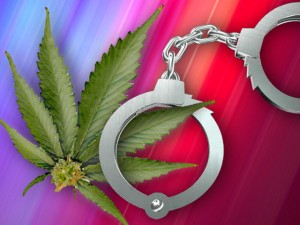 Probably not, experts say. A report in The Denver Post concludes that
Probably not, experts say. A report in The Denver Post concludes that  The suit, filed by officials in Nebraska and Oklahoma,
The suit, filed by officials in Nebraska and Oklahoma, 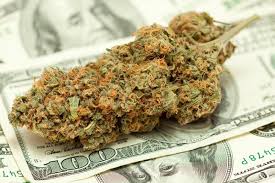 The Colorado Department of Revenue, which collects state taxes, reported that cannabis sales, both recreational and medical, came in at about $996 million, a record for the industry and a 42 percent increase from 2014.
The Colorado Department of Revenue, which collects state taxes, reported that cannabis sales, both recreational and medical, came in at about $996 million, a record for the industry and a 42 percent increase from 2014.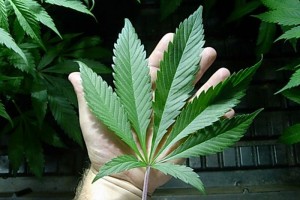 For one thing, local communities in Colorado can ban pot shops, so residents are faced with a patchwork of conflicting laws across the state. What is legal in one county may not be legal in the next.
For one thing, local communities in Colorado can ban pot shops, so residents are faced with a patchwork of conflicting laws across the state. What is legal in one county may not be legal in the next. Officers with the department’s
Officers with the department’s  Northern California is notorious among stoners, who have seen countless busts by local officials, state agencies, and federal law enforcement. Federal raids have become less common after President Barack Obama announced a new, more liberal marijuana policy in 2013.
Northern California is notorious among stoners, who have seen countless busts by local officials, state agencies, and federal law enforcement. Federal raids have become less common after President Barack Obama announced a new, more liberal marijuana policy in 2013. That means 2016 could be the biggest year yet for cannabis reform. The San Francisco Chronicle reports that elections officials in 19 states have already received
That means 2016 could be the biggest year yet for cannabis reform. The San Francisco Chronicle reports that elections officials in 19 states have already received 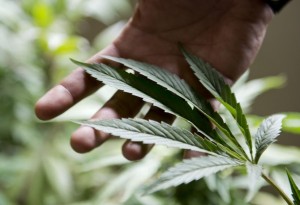 The election could see the arrival of legal marijuana on the East Coast (Maine, Massachusetts, Vermont, and New York), and in the Midwest (Michigan). But many of the 24 states are long shots at best.
The election could see the arrival of legal marijuana on the East Coast (Maine, Massachusetts, Vermont, and New York), and in the Midwest (Michigan). But many of the 24 states are long shots at best. In Vermont,
In Vermont,  The report, published in February in the journal JAMA Psychiatry, found that
The report, published in February in the journal JAMA Psychiatry, found that  “The findings concerning cannabis raise the question of whether alcohol use also contributes to the risk of subsequent substance use disorders,” said lead author Mark Olfson of Columbia University. In other words, even if one drug causes addiction to other drugs, it might be the alcohol, not the marijuana.
“The findings concerning cannabis raise the question of whether alcohol use also contributes to the risk of subsequent substance use disorders,” said lead author Mark Olfson of Columbia University. In other words, even if one drug causes addiction to other drugs, it might be the alcohol, not the marijuana. Gitzner’s decision came in a lawsuit filed in 2014 by Erin Furleigh and Paul Gerlich, both former presidents of Iowa State’s branch of NORML. School officials approved the shirts but later reversed that decision, Gerlich and Furleigh said, after conservative lawmakers and donors pressured the school to backtrack.
Gitzner’s decision came in a lawsuit filed in 2014 by Erin Furleigh and Paul Gerlich, both former presidents of Iowa State’s branch of NORML. School officials approved the shirts but later reversed that decision, Gerlich and Furleigh said, after conservative lawmakers and donors pressured the school to backtrack. University lawyers mostly ignored the First Amendment claim and insisted they have a right to enforce their trademark – even if it interferes with the protected expression of students.
University lawyers mostly ignored the First Amendment claim and insisted they have a right to enforce their trademark – even if it interferes with the protected expression of students.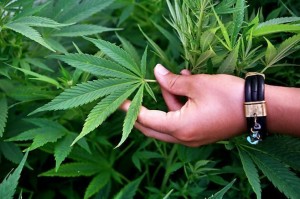 But
But  Worries about organic cannabis claims surfaced last year when health officials in Denver seized thousands of plants and
Worries about organic cannabis claims surfaced last year when health officials in Denver seized thousands of plants and  With his unexpected death in February, the future of the court suddenly became a major issue in the
With his unexpected death in February, the future of the court suddenly became a major issue in the  If he doesn’t, the court will likely decide several major cases this year by 4-4 tie votes. In that event, the lower court rulings would stand, a fact that should benefit liberals over the next several months.
If he doesn’t, the court will likely decide several major cases this year by 4-4 tie votes. In that event, the lower court rulings would stand, a fact that should benefit liberals over the next several months.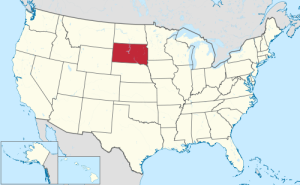
 But what does all this mean for
But what does all this mean for 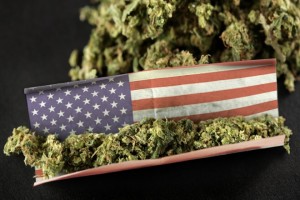 But there is no guarantee yet that Sanders will win the nod. Clinton has a wider base of support in many of the states that haven’t voted yet, including minority voters, moderates, and older Democrats. Thankfully, she supports medical marijuana and has said she will keep an
But there is no guarantee yet that Sanders will win the nod. Clinton has a wider base of support in many of the states that haven’t voted yet, including minority voters, moderates, and older Democrats. Thankfully, she supports medical marijuana and has said she will keep an  In recent years, health experts have come to believe that inflammation of human cells contributes to a wide range of major diseases, including heart failure, stroke, cancer, epilepsy, multiple sclerosis, Alzheimer’s disease, and many others.
In recent years, health experts have come to believe that inflammation of human cells contributes to a wide range of major diseases, including heart failure, stroke, cancer, epilepsy, multiple sclerosis, Alzheimer’s disease, and many others. The biggest problem with traditional NSAIDs is that they can damage parts of the body and even cause death. A Tylenol overdose can cause liver failure, aspirin can cause damage to the lining of the stomach, and chronic use of naproxen or ibuprofen increases risk of heart attack or stroke. This makes it much harder to use these drugs as a long-term means of fighting inflammation.
The biggest problem with traditional NSAIDs is that they can damage parts of the body and even cause death. A Tylenol overdose can cause liver failure, aspirin can cause damage to the lining of the stomach, and chronic use of naproxen or ibuprofen increases risk of heart attack or stroke. This makes it much harder to use these drugs as a long-term means of fighting inflammation.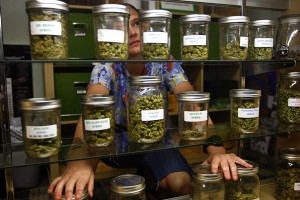 Among other things, proponents say, that kind of money suggests marijuana users are happy to buy their supply legally. That willingness could make the idea of legalization more appealing to voters and lawmakers in other states.
Among other things, proponents say, that kind of money suggests marijuana users are happy to buy their supply legally. That willingness could make the idea of legalization more appealing to voters and lawmakers in other states. That means
That means 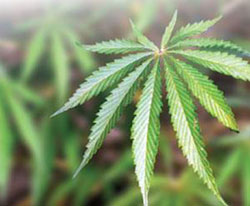 3. 2007: In this massive haul, law enforcement seized more than 13 tons of cannabis that originated with the Sinaloa cartel of Mexico. Agents also took nearly 10,000 pounds of cocaine, more than 700 pounds of methamphetamine, more than 10 pounds of heroin, and more than $45 million. Known as “operation Imperial Emperor,” this bust led to
3. 2007: In this massive haul, law enforcement seized more than 13 tons of cannabis that originated with the Sinaloa cartel of Mexico. Agents also took nearly 10,000 pounds of cocaine, more than 700 pounds of methamphetamine, more than 10 pounds of heroin, and more than $45 million. Known as “operation Imperial Emperor,” this bust led to 
 It was unclear where the marijuana
It was unclear where the marijuana  Facebook has long allowed
Facebook has long allowed 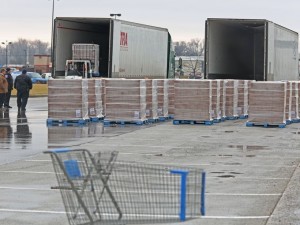 Police in Fishers, Ind., said they
Police in Fishers, Ind., said they  The technique allegedly used by the driver is not new: Drug runners frequently ship their product in trucks, disguised with other, legal items.
The technique allegedly used by the driver is not new: Drug runners frequently ship their product in trucks, disguised with other, legal items.